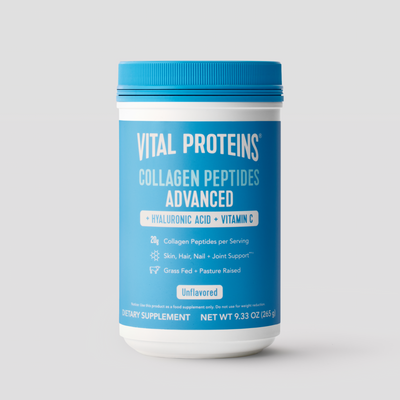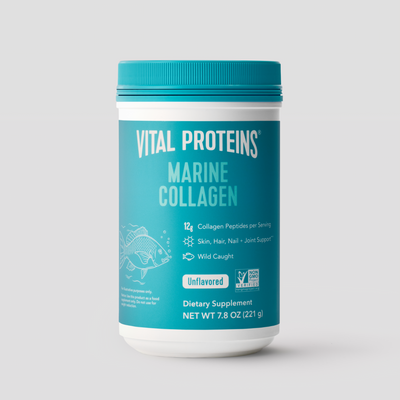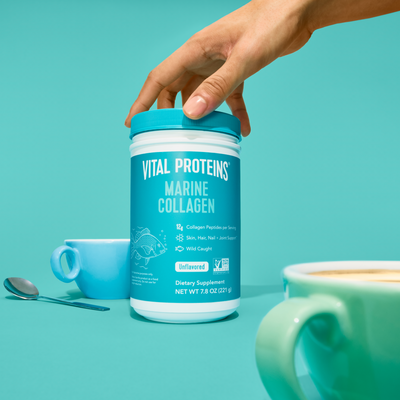By: Whitney Stuart
Whitney Stuart MCN, RDN, is a board-certified dietitian-nutritionist, diabetic educator and award-winning Whole30® Certified Coach. She holds a “real food first” approach through her holistic practice,Whitness Nutrition, which offers full spectrum nutritional assessment, corporate wellness challenges and seminars. Here, she gets real about food freedom.
The phrase “food freedom” has been added to 2019’s health buzzwords, right next to self-care. But what does it mean?
Food freedom is feeling in control of the food you eat. It is creating a safe space for all foods you freely choose to consume without associated guilt. Melissa Hartwig, Whole30 founder and author ofFood Freedom Forever, coined the term most prominently through her nutritional reset. She says, “Food freedom happens when I... ask myself what I really wanted and made a conscious, deliberate decision…. Food freedom is realizing I can have anything I want, any time I want it ... and in the moment, simply honoring whether or not I really want it.”
Food freedom actually has very little to do with the actual health of the food. This term corresponds to the emotional choice than the physical item you choose. The goal is to feel just as in control while you’re eating kale as you do with a cupcake. But, let’s be real,very few people are having a hard time finding a peaceful place for leafy greensin their diet. It’s the other gray-area foods, like sugar, grains, and alcohol that struggle to find their peaceful place in our diets.
RELATED:No, Mindful Eating Does Not Mean Eating in Silence

Now, what dictates what you eat? Is it a nutrition app, a strict meal plan, a role model taped to the bathroom mirror? Or do you simply eat what sounds good? The concept of food freedom asks that you eat what you desire, while remaining in full control, knowing that nourishment is just as heavily related to emotional health as it is physical. Although we know that nutrient-rich foods – leafy greens, plant-based fats, nuts, and seeds, to name a few – do cause us to feel better, both physically and emotionally, less-nutrient-rich options have a place too. This goes against the diet culture, which states that you should avoid what you want and remain in control of depriving yourself, until you attain said goal. A rigid lifestyle with heavy restriction is far from freeing. Over restriction leads to eventual bingeing and loss of self-control.
Each person has their own eating habits and personal health journey. But every person deserves freedom within that a.k.a. to eat without associated anxiety. Practicing food freedom allows you to enjoy food and change the perspective to include a stronger focus on self-love. The process gets rid of food rules and structure that may have kept you from enjoying certain foods in the past. This practice heavily relies on intuition and your body’s cues to choose what sounds best — not what you “should” have, or, on the opposite spectrum, unhealthily yearn for. Food Freedom doesn't mean having a daily pizza for breakfast nor does it mean cooking Whole30-only breakfasts. It allows for creativity and variation outside of rigid diet culture. You can just eat, because you choose to, and enjoy the flavor in that moment.
RELATED:A Dietitian Shares 7 Tips for Living a Healthier Life
Food Freedom in Action
Food freedom is saying, “Yes, please!” to a mimosa because you love the flavor, but equally saying, “No, thank you!” because accepting in that situation would be due to imposed social norms. Food freedom means enjoying a margarita on date night without the normal detrimental verbiage of “I know I shouldn't be drinking this, but…” because you remain in control and honor your decision. It becomes: “I am enjoying the margarita I intentionally ordered.” Food freedom requires the removal of morality from food; no person is “good” or “bad” based on their dietary habits. Food freedom takes the power off the plate and gives it back to the person.
What Food Freedom Looks Like
This freedom around food is created through the knowledge of what works for your body, which likely comes from experimentation, resets, and listening intuitively to your body’s response to food. This “self-experiment” can be extremely valuable; it’s a way to clearly evaluate the emotional and physical reaction to food. Your plan is uniquely your own and uncontrolled my anyone else. You are in the driver’s seat.
Danika Brysha, Whole30 Certified Coach, model, and founder ofModel Mealsdefines this as “a point where you’re in control of the food you eat vs. the food controlling you.” Food freedom requires you to be fully in control of your dietary choices. Food doesn’t choose for you. You are an independent and clear-headed boss babe who can choose to fuel her body however she wants. Some days it’s a cookie and some days it’s quinoa. Either way, you’re removing any guilt from either decision. Although it takes practice, patience and commitment, there is freedom in a life that doesn’t find its obsession on a plate.

















